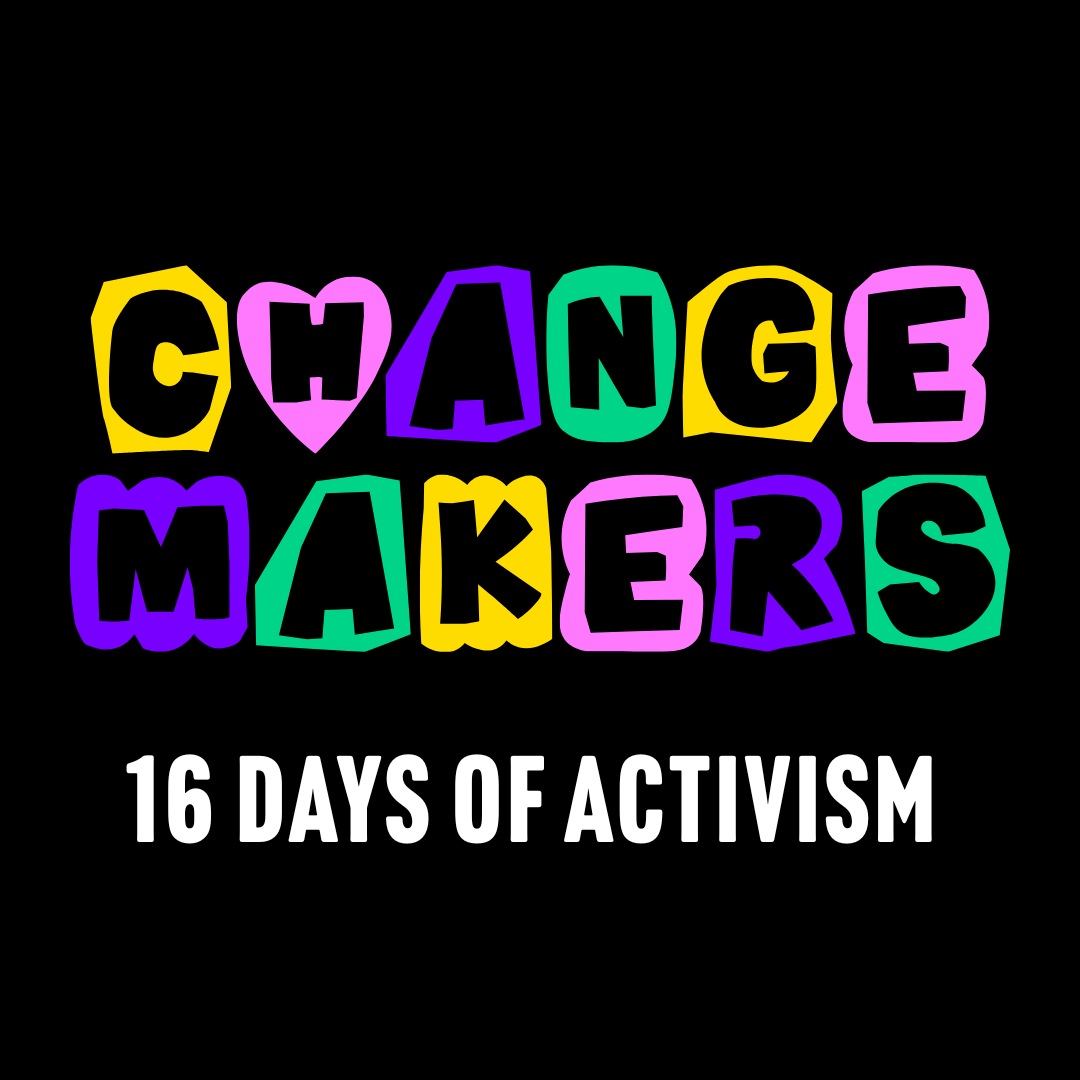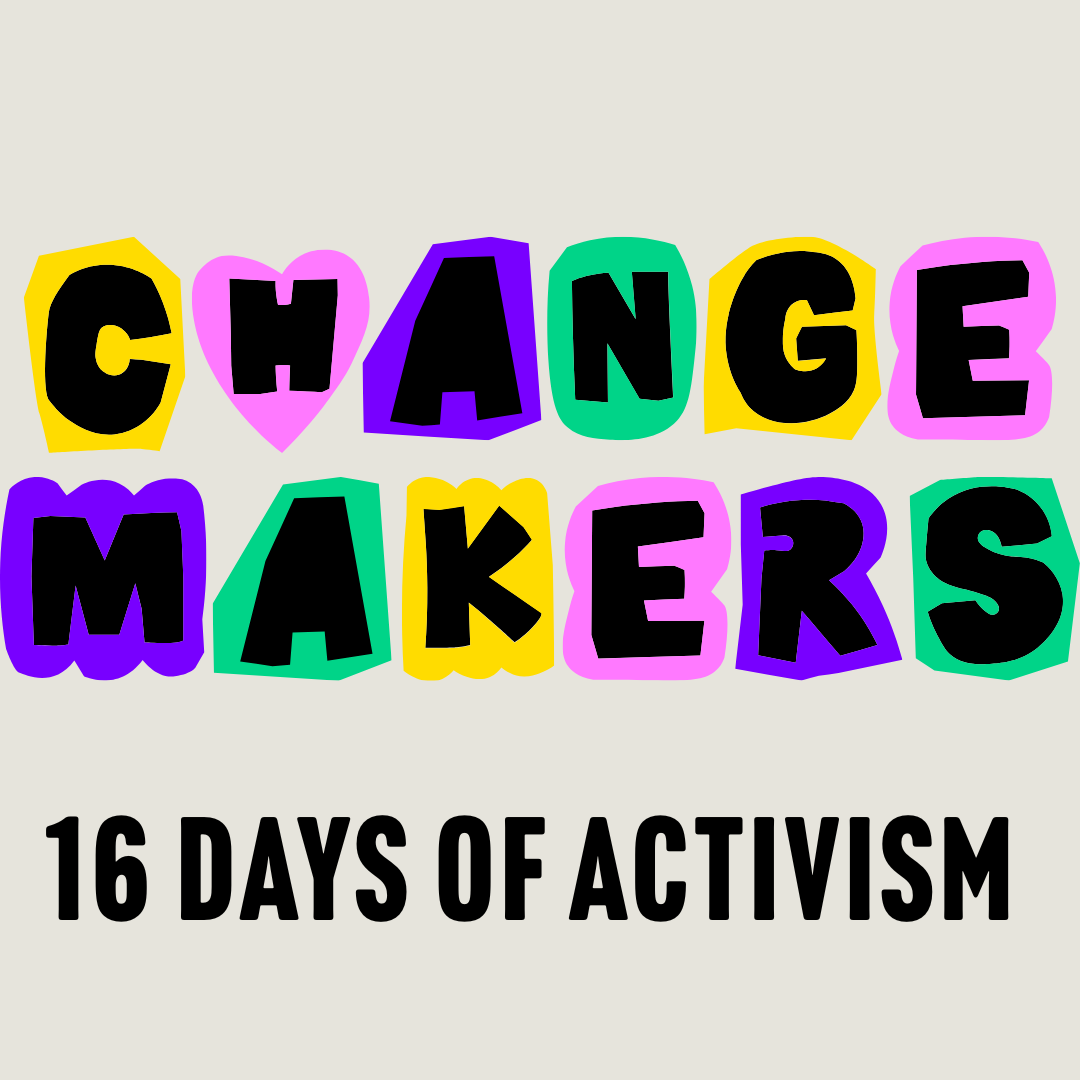Welcome to the 16 Days of Activism 2025
by Tania Farha
CEO, Safe and Equal
At Safe and Equal, we’re working towards a world where everyone is safe, living free from family and gender-based violence. And we’re not the only ones. Though it can sometimes feel like an uphill battle, it’s important to remember how many people are working together every day to create real change.
From feminist rebels throughout history to today’s activists, primary prevention practitioners to recovery and response workers, early intervention support to victim-survivor advocates — there are scores of people working towards a better and safer world for all.
Last year, to commemorate the 16 Days of Activism against Gender-Based Violence*, we published Hope in Action. This campaign demonstrated how family and gender-based violence prevention and response work is creating hope – for both the family violence sector and the broader community – through meaningful change.
We platformed different stories of Hope in Action, featuring three incredible practitioners working to end family and gender-based violence; Starlady, Feifei Liao and Tess Stewart-Moore.
These stories showcased the tangible impact of community-based and community-led prevention and response work and reminded us that ending gender-based violence is possible, when we have hope.
In 2025, our campaign will focus on the theme of Changemakers. This year, we are continuing to showcase some incredible initiatives and steps forward – by both individuals and organisations – to address family and gender-based violence.
Throughout the 16 Days, we’ll be spotlighting some of the changemakers working across the spectrum of our sector in Victoria. These dedicated advocates, practitioners and organisations are changing attitudes, behaviours, systems and lives. We hope that showcasing this crucial and inspiring work demonstrates the collective power and momentum of our incredible sector. It’s also always important to highlight the progress that has been made.
The rate of family and gender-based violence in this country is shocking.
But we have power in numbers too. Together, we can create real and lasting change.
*Each year, the 16 Days of Activism against Gender-Based Violence takes place from 25 November (the International Day for the Elimination of Violence against Women) to 10 December (International Human Rights Day). This global campaign (running since 1991!) provides an opportunity for individuals, organisations and communities to unite and collectively advocate for the elimination of gender-based violence.
A history of activism against gender-based violence in Victoria
Safe and Equal exists because of the activism, leadership and expertise of victim survivors, practitioners and leaders who have come before us demanding safety and equality. Below is a history of our organisation and the many Victorian changemakers who forged the path.
For most of the last century, family violence was mostly hidden, deemed shameful and seen as an individual or family problem. It was not recognised as a crime until 1975, and before this there were no dedicated services or support for victim survivors. During the 1960s and 1970s, amid the growing women’s liberation movement, feminist activists were shaping and defining understandings of gender and politicising women’s oppression, inherently tied to patriarchy.
Against this backdrop, the refuge movement was born as a direct response for women who were experiencing family violence, and facing homelessness, poverty and social stigma. These activists worked long and hard, mostly as unpaid volunteers, to shine a light on the women and children who were being abused and murdered.
Victoria’s first refuge, the Women’s Liberation Halfway House, was established in 1974. By 1979, sixteen refuges had been established – including the Aboriginal Women’s Refuge (now known as Elizabeth Hoffman House), and dedicated services for Italian women. By the late 1980s, there were more than thirty refuges. In 1987, The Crimes (Family Violence) Act was passed in Victoria, expanding options for family violence victims to seek Apprehended Violence Orders.
This swell of collective action was driven by courageous and visionary women working to dismantle patriarchal power and create a safer world. A core group of leaders within this movement came together to form the Victorian Women’s Refuge Group in 1976, later known as Victorian Women’s Refuges and Associated Domestic Violence Services (VWRADVS).
In 1985, VWRADVS received a small $50,000 grant to fund an advocacy centre. The Domestic Violence and Incest Resource Centre was born.
The Domestic Violence and Incest Resource Centre (DVIRC)’s humble beginnings were fuelled by fierceness and informed by a radical feminist perspective that viewed sexual assault
and family violence as crimes arising from a gendered power imbalance in society.
With the support and backing from VWRADVS, Lynne Burgoyne was employed as the inaugural sole worker of DVIRC. Equipped with her typewriter, Lynne worked tenaciously in the corner of another small feminist organisation, the Women’s Information and Referral Exchange (WIRE), centering child sexual abuse and family violence in DVIRC’s advocacy agenda.
In 1987, DVIRC formed the Women’s Coalition against Family Violence, a network which launched the ‘Domestic Murders Campaign’ – the first major public campaign to recognise family violence deaths. A boost of funding in 1989 provided the opportunity for DVIRC to expand grassroots community activities, with a focus on refugee and migrant women.
Formative years
The early to mid-1990s saw huge shifts in the family violence and sexual assault sectors across legislation, policy and advocacy. In 1991, The Crimes (Rape) Act passed, making significant changes to Victoria’s rape laws including clarifying legal definitions of consent. In this same year, the High Court of Australia confirmed the legal right of women to refuse sex within marriage, and Victoria Police released their Code of Practice for the Investigation of Sexual Assault. The first 16 Days of Activism Against Gender-Based Violence campaign was held in 1991, and the Telephone Services Against Sexual Assault was established providing a state-wide, after-hours service to victims of sexual assault.
In 2001, family violence was identified as a top priority for Victoria Police by Chief Commissioner Christine Nixon, resulting in the Victoria Police Code of Practice for the investigation of Family Violence. In 2004, a VicHealth and Department of Human Services study identified intimate partner violence as the leading burden of disease for Victorian women aged 15 to 44, followed a few years later by VicHealth’s first survey of community attitudes towards violence against women. One of the most significant statistics to emerge in Australia during this time came from the second Personal Safety Survey conducted by the Australian Bureau of Statistics which showed that one in three Australian women had experienced violence from a male partner. This was a shocking number, and one that pushed conversations around family violence into the collective consciousness.
During this time, the Victorian Government was beginning to listen and take action. The Statewide Steering Committee to Reduce Family Violence was established, the first Women’s Safety Strategy was launched, and VWRADVS was working to establish a policy position within the family violence sector. This work paved the way for the transition of VWRADVS from a grassroots collective to an official peak body for specialist family violence services, known as Domestic Violence Victoria (DV Vic). Janine Bush was the first paid employee, as DV Vic’s Policy Coordinator from 2002. In 2005, Fiona McCormack was appointed as DV Vic’s first CEO.
This was a period of enormous change, as the coordinating collective became a Board of Management. Prior to this, VWRADVS met regularly but had no public profile – Fiona was tasked with establishing DV Vic’s voice and visibility in a way that would represent the sector effectively.
A very small but influential lever for advocacy, DV Vic drove systemic changes and established a key role within statewide coordination, specialist practice development and policy reform.
In 2006, DV Vic developed the first Code of Practice: Principles and Standards for Specialist Family Violence Services Responding to Victim Survivors in Victoria. This was an important moment in DV Vic’s history, requiring the family violence sector to come together and find consensus on practice principles and standards. This was followed two years later by the introduction of the Family Violence Protection Act 2008 from the Victorian Government.
During these advocacy-focused years, DV Vic solidified its position as a key voice of family violence expertise, convening the EVA Media Action Group to improve media reporting on family violence from 2012, and presenting on Victorian family violence reforms to the United Nations NGO Parallel Event on the Convention of the Status of Women in New York and at the Roundtable for United Nations Special Rapporteur on Violence Against Women. This coincided with state government developments, including the release of Victoria’s Action Plan to Address Violence Against Women and Children.
DVIRC becomes DVRCV
In the late 1990s and early 2000s, DVIRC utilised the online space to support victim survivors and family violence professionals, launching their first website in 1997. This was followed in by When Love Hurts (later renamed Love: The Good, The Bad and The Ugly) and Bursting the Bubble, both innovative sites designed for children and young people.
In 2001, DVIRC became a Registered Training Organisation, delivering the first accredited family violence training in the country. By 2007, DVIRC was delivering statewide training on the Family Violence Risk Assessment and Risk Management Framework (often referred to as the Common Risk Assessment Framework, or CRAF, working to support a consistent approach for assessing and managing family violence risk across Victoria.
From its earliest days of one worker and a typewriter, DVIRC had grown its impact and reach to become a hub for family and genderbased violence resources, research and workforce capability building. In 2009, the collective opted to become an Incorporated Association, changing its name to the Domestic Violence Resource Centre Victoria (DVRCV), and appointing its first Executive Officer, Vig Geddes.
In 2013, DVRCV partnered with DV Vic to launch The Lookout website, a single source for specialist family violence practice information and resources. In the same year, DVRCV
launched the SmartSafe website, based on Australia’s first research into technology facilitated abuse. This later led to the development of SmartSafe+, a smartphone app that would go on to win the Premier’s iAward for Public Sector Innovation in 2016.
During these years, there were several key state and federal reforms in the family violence space. In 2009, the Commonwealth Government appointed the first National Council to Reduce Violence against Women and their Children, and the second National Community Attitudes Towards Violence Against Women Survey was undertaken, including Aboriginal and culturally and linguistically diverse communities for the first time. In 2011, the national sexual assault and domestic violence counselling service 1800RESPECT was launched, and in 2013, both Our Watch and Australia’s National Research Organisation for Women’s Safety (ANROWS) were established as initiatives out of the National Plan to Reduce Violence against Women and their Children 2010-2022.
In spite of all these changes, ongoing family and gender-based violence across all communities continued to fuel both DV Vic and DVRCV’s commitment to advocacy and education activity. Between 2010 and 2014, there were several high-profile sexual assaults and homicides that left the community shocked and demanding change.
In this same year, DV Vic, DVRCV and No to Violence (the Victorian peak body for services and practitioners that work with men who use family violence) were funded to manage the rollout and training of Risk Assessment and Management Panels (RAMPs): formally convened meetings comprised of key agencies and organisations to share information and take action to keep people at the highest risk from family violence safe. DV Vic and DVRCV also worked together to establish the No More Deaths alliance, calling for family violence to lead the agenda in the 2014 Victorian state election. This was a year of unprecedented media and community focus on family violence, marking the beginning of enormous changes within the sector. This included the appointment of a new ministerial portfolio for the Prevention of Family Violence, held by Fiona Richardson MP – the first such position in Australia.
In the months following Luke’s death, DV Vic’s CEO Fiona McCormack accompanied Rosie to meet with Victorian Premier Daniel Andrews to demand change. Rosie’s advocacy was instrumental in his decision to call a Royal Commission into Family Violence, a watershed moment that led to unprecedented investment and reforms within the Victorian family violence system for years to come.
A reform agenda
The Royal Commission into Family Violence was held in 2015. DV Vic and DVRCV were key contributors to the proceedings, developing multiple submissions and providing testimony across the 25 days of public hearings. In 2016, the Royal Commission released its report, with the Victorian Government committing to implement all 227 recommendations, followed by an investment of $2.7 billion to support this.
Focus on the family violence sector was at an all-time high, resulting in dramatic organisational shifts for both DV Vic and DVRCV.
During this time, DVRCV tripled in size. Under the leadership of a new CEO, Emily Maguire, the organisation’s strategy focused on building capability across sectors, positioning DVRCV as the go-to voice on workforce development for the family violence and primary prevention sectors. The time had come to re-focus DVRCV’s strategic direction, which meant closing the organisation’s library.
2016 saw the release of Victoria’s first gender equality strategy Safe and Strong, followed by Free from Violence, the State Government’s strategy to prevent all forms of family violence and violence against women, placing the spotlight on primary prevention. Post-Royal Commission, the expansion of DVRCV saw the establishment of a dedicated prevention team, expanding the Partners in Prevention program established back in 2007 to support the delivery of respectful relationships education initiatives in schools.
In 2018, DVRCV hosted the first primary prevention conference on ‘Achieving Generational Change’. Rebranded as PreventX, the conference grew and evolved in 2019 and then online in 2020, demonstrating a shift in Victoria from a nascent prevention sector to one that was becoming more established and resourced.
During this time, the culture of DVRCV was one of feminism, hard work and camaraderie – going above and beyond to create opportunities for lightness and positivity to help make the heavy work sustainable for staff. DV Vic also grew exponentially in the years following the Royal Commission, establishing a practice development unit in 2017 to ensure members were appropriately resourced to sustain and strengthen their specialist family violence practice.
More broadly, the sector was becoming more professionalised. In 2016, the Victorian Government established both the Family Violence Steering Committee (with DV Vic’s CEO and the Minister for the Prevention of Family Violence as co-chairs) and the Victim Survivors’ Advisory Council, to place people with lived experience of family violence at the centre of reforms. 2017 saw the release of Building from Strength: 10 Year Industry Plan for Family Violence Prevention and Response, as well as the establishment of Family Safety Victoria to lead the implementation of the government’s family violence reforms. The Common Risk Assessment Framework (CRAF) was reviewed and re-developed, becoming what is now known as the Family Violence MultiAgency Risk Assessment and Management Framework (MARAM).
In 2019, DV Vic published the Second Edition of the Code of Practice: Principles and Standards for Specialist Family Violence Services Responding to Victim-Survivors in Victoria. Building on a significant resource that informed the development of Victoria’s family violence sector over many years, the second edition of the Code of Practice retained a specialist, intersectional feminist lens on family violence work as the sector became more joined up with the mainstream Victorian human services system.
In 2019, as the sector moved into a new phase of systemic reforms, the Boards of DV Vic and DVRCV identified that a merger would grow the capacity of the peak to listen to and support the work of frontline services, reflect members’ experience, and embed the voice of lived experience in policy, advocacy and systems reform work.
Following a robust consultation process, their Boards and members voted in favour of an organisational merger in 2020, with Tania Farha appointed as the CEO of the new entity soon after.
Combining strengths, energy and resources for greater impact, this merge represented a new chapter in the long histories of two well–respected organisations, further widening the lens of the family violence sector to ensure all voices and experiences are understood and included.
In 2021, Safe and Equal launched as the new peak body for specialist family violence services responding to victim survivors in Victoria. With a new name and united vision, Safe and Equal will work towards a world beyond family and gender-based violence, where women, children and all people from marginalised communities are safe, thriving, and respected.
Safe and Equal exists because of the activism, leadership and expertise of victim survivors, practitioners, and leaders who have come before us demanding safety and equality.
To them, we say thank you.
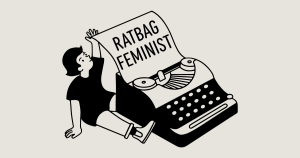

These hardworking advocates and organisations are dedicated to creating real and lasting change across Victoria.
Changing conversations. Changing behaviours. Changing the system. Changing lives.
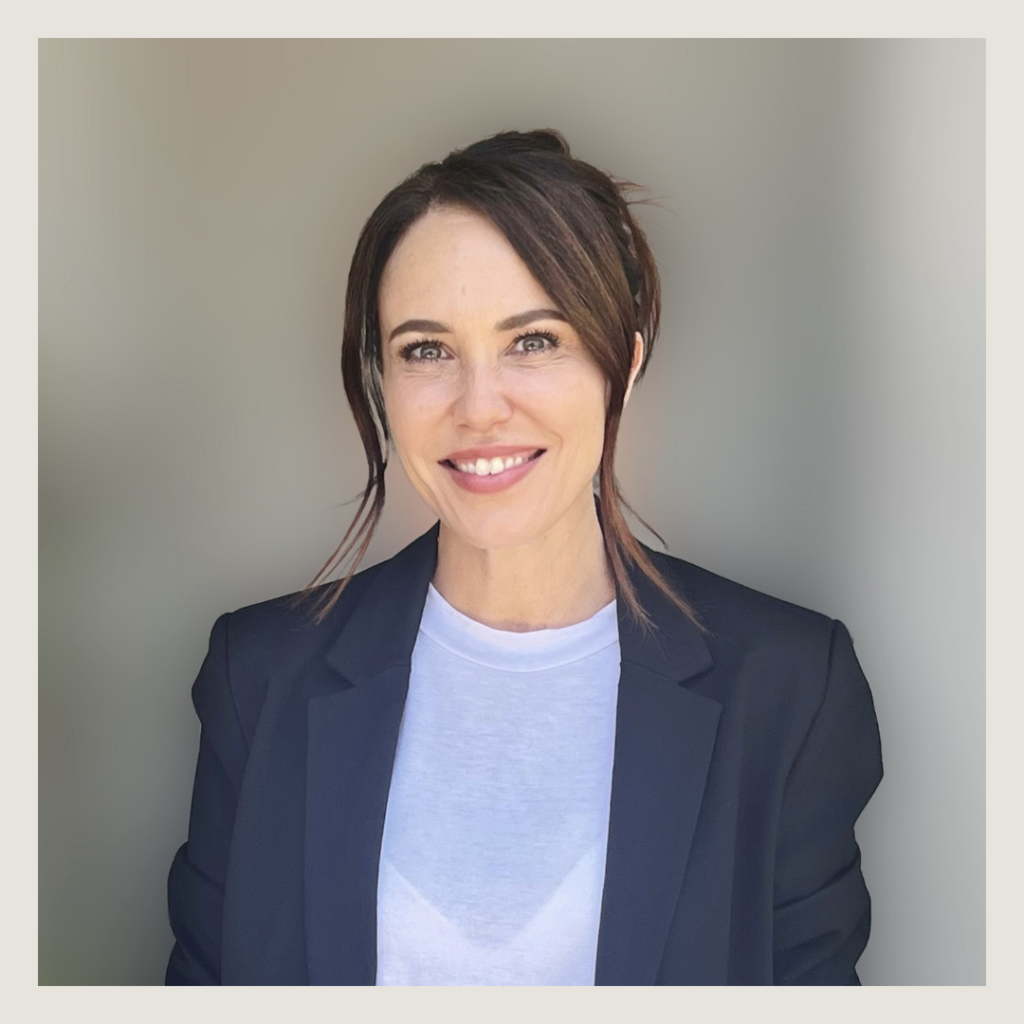
Kym Valentine
Well known to many for her long-running and much-loved role in the television show Neighbours, Kym Valentine is using her voice to create real change. Kym is a Lived Experience Advisor at the Foundation for Alcohol Research and Education (FARE) and is responsible for advocating for the voice of lived and living experience to prevent and reduce alcohol harm. Kym’s role involves advocate engagement, community campaigns, promotional projects, social awareness, industry and government accountability, lobbying for effective legislation reform and advocating for systemic change.
Kym is raising awareness of how alcohol exacerbates the frequency and severity of domestic and family violence. Up to 65 per cent of police callouts to family violence incidents and up to 60 per cent of intimate partner homicides involve alcohol. Kym is campaigning for better safety measures around alcohol delivery, including reducing the delivery hours from 10am to 10pm and imposing a two-hour safety pause from when alcohol is ordered to when it’s delivered to act as a circuit breaker for people who are already intoxicated and reduce alcohol-related harm.
Kym’s number one priority in her advocacy work is children. She believes that reducing children’s exposure to alcohol-related harm and violence in the home early on will have a knock-on effect for generations to come, intervening with intergenerational cycles of violence. She has been strongly advocating to reduce the amount of alcohol and gambling advertising on television, to minimise children’s exposure to this type of marketing.
Currently, Kym is working with an advisory committee of family violence prevention specialists, putting together a new national framework around violence against women and alcohol. The framework is due to be released in 2026.

Australian Muslim Women’s Centre for Human Rights
The Australian Muslim Women’s Centre for Human Rights (AMWCHR) advocates for the rights of all Muslim women through programs, casework, research, publications and consultancy.
AMWCHR’s Voices for Change project sought to raise awareness and build capacity within Victoria’s Muslim communities towards the prevention of family violence. The project had two components: group-based primary prevention programs for Muslim women, young women, young men, girls and boys; and a research project to explore the barriers and facilitators to engaging Muslim men and boys in the prevention of family violence.
The Voices for Change program engaged over 460 members of Victoria’s Muslim communities. Program participants reflected an increased understanding of the different forms of family violence, increased confidence to promote gender-equal values and increased knowledge about the importance of speaking about family violence. By the end of the program, all participants were able to identify gender inequality and patriarchy as the key belief systems that perpetuate violence against women.
Based on these findings, AMWCHR has developed a Framework for Engaging Muslim Men in Family Violence Prevention. This resource is a starting guide for designing prevention initiatives tailored to Muslim men and boys. Overall, Voices for Change has contributed to important shifts on the ground and the new Framework will serve as a valuable resource to guide ongoing prevention efforts.

McAuley Community Services for Women
For over 35 years, McAuley Community Services for Women has helped women, children and young people experiencing family violence and homelessness to take control of their lives and build a brighter future.
Safe at Home is their new early intervention approach to supporting people experiencing family violence. It aims to change the default system from women and children having to leave their homes to ‘escape’ violence, to one where they have a choice to stay safely in their own home while services work with the whole household to actively disrupt the violence.
Safe at Home aims to reduce the number of people forced into homelessness through family violence and the number of people who return to live with people using violence because they have nowhere else to live. Safe at Home also offers support to the person using violence, to ensure accountability and help them move toward a future free of violence.
In March this year, the first three-year Safe at Home trial was launched in the Geelong and Barwon region, led by McAuley Community Services for Women in partnership with local community service provider Meli. Geelong was selected for the trial because of the high demand for family violence and homelessness support in the region, its suitability for testing a prototype that can then be scaled to other areas, and Meli’s expertise in delivering integrated community services for local families.

Nina / FIGJAM Collective
Nina is a survivor advocate and abolitionist, bringing urgent attention to the relationship between family violence and criminalisation. She works at Flat Out, a community-based organisation that supports and advocates for women, trans and gender diverse people to get out and stay out of prison.
Nina manages Flat Out’s Family Violence Justice Project, an initiative aiming to improve the accessibility and responsiveness of the service system for women who are criminalised and experiencing family violence. There are four domains of the project: community engagement and capacity building in the sector, data and evaluation, partnerships and relationships and advocacy and policy reform.
Nina also founded the FIGJAM Collective; Formerly Incarcerated Girls Justice Advocates Melbourne. All members are survivors of violence in the community but also at the hands of the state, namely prisons and police. FIGJAM was founded in the hope of building a community of staunch advocates providing connection, belonging and peer support to its members. The collective currently has 25 members and in the four years that they’ve been running, not one member has returned to prison. The sense of community, opportunity and purpose that this collective provides has been truly transformative for its members.
About 90 per cent of women entering the prison system have previously been sexually assaulted or abused and are then retraumatised with unnecessary strip searches. FIGJAM has been campaigning to end strip searches in Victorian prisons and recently collaborated with the Human Rights Law Centre to produce a research report on the issue. The members of FIGJAM are creating real change, not only for themselves, but for their children, families, communities and beyond.
You can learn more about FIGJAM here and donate to their GiveNow page here.

Switchboard
Switchboard Victoria is a community based not-for-profit organisation that provides a peer driven, support service for the lesbian, gay, bisexual, transgender and gender diverse, intersex, queer, asexual (LGBTIQA+) communities and their allies, friends, support workers and families.
They recently established a dedicated helpline to support LGBTIQA+ people in Victoria who have been lured and/or targeted by violence via dating and meet-up apps. This free, confidential helpline is staffed by trained LGBTIQA+ peer workers offering trauma-informed support, referral and information in a safe, affirming environment.
The helpline was created in response to the recent spate of attacks targeting users of dating and meet-up apps like Grindr, in particular gay, bisexual and other men who have sex with men. Switchboard understands that people impacted by this violence may face barriers to accessing support, such as the fear of not being believed, the fear of being blamed and the fear of being outed or exposed.
The helpline provides information about rights and options – including getting legal help, accessing counselling services and navigating available reporting pathways. Its goal is to support callers to feel empowered in taking actions that feel right to them.

Women with Disabilities Victoria
Women with Disabilities Victoria is a not-for-profit organisation representing women and gender diverse people with disabilities in Victoria.
They are developing a new collection of resources – Preventing Violence Against LGBTIQA+ People with Disabilities – that aim to build and deepen understanding of the intersection of gender, disability and LGBTIQA+ identities to take action to promote gender and disability equality for LGBTIQA+ people with disabilities. These resources are co-designed by women and gender diverse people with disabilities, ensuring that lived experience and leadership are central to every stage of development.
LGBTIQA+ people with disabilities show extraordinary strength and resilience, often facing overlapping discrimination including ableism, homophobia, transphobia, intersexphobia, racism and classism. Their lived experiences and leadership guide this project and its partnerships, shaping practical tools for change.
These resources aim to empower policymakers, service providers, educators and communities to better understand these issues and take meaningful action toward equality and inclusion.
Read more about the Preventing Violence Against LGBTIQA+ People with Disabilities resources here.

Martina Eaton
Martina Eaton is a survivor advocate who has been campaigning for the prevention of family violence for over a decade. Her advocacy centres on family violence within LGBTQIA+ communities and faith-based communities. She believes in an early intervention approach: raising awareness, establishing programs and sharing information within communities. Recently Martina has been focused on increasing the visibility of coercive control as a form of family violence.
Martina believes that research and the development of primary prevention resources should always be informed by lived experience. She worked with the Victim Survivors’ Advisory Council for three years, sharing her knowledge to inform Victoria’s prevention of family and sexual violence.
She’s also been involved with the University of Melbourne’s WEAVERs – a group of women who have experienced domestic, family violence and/or sexual violence and who play a role in ‘weaving’ lived experience into research and training – and the Faith Project Advisory Group, developing primary prevention resources that can be used across different faiths.
Martina has been a dedicated advocate for 13 years, because she doesn’t want anyone else to experience what she and her son went through. She used to think that being in a lesbian relationship meant that she was immune to being a victim of family violence. When she first went to a family violence service in 2012, they reinforced this myth by saying they couldn’t help her because her perpetrator was female. Thankfully, a lot has changed since then, largely thanks to people like Martina bravely sharing their story.

Women’s Health Loddon Mallee
Women’s Health Loddon Mallee (WHLM) advocates for the health and wellbeing of women across the Loddon Mallee region in Victoria, working towards a future that sees equitable distribution of power and resources across all gender groups.
Climate change, emergency and disaster situations present an immediate and escalating risk to public health. As we face more frequent and severe disasters, existing health inequities are compounded, disproportionately impacting women, girls, gender diverse people and other marginalised communities. Evidence also shows that gender-based violence escalates during and after extreme weather events, placing women at an increased risk when services are stretched and emergency services are not appropriately prepared.
Weathering the Change is WHLM’s blueprint for gender equity in climate planning and response, outlining strategies to address these inequities and promote a gender-transformative approach. Weathering the Change emphasises the importance of capturing and including diverse community voices in guiding disaster and emergency mitigation, preparation, response and recovery efforts.
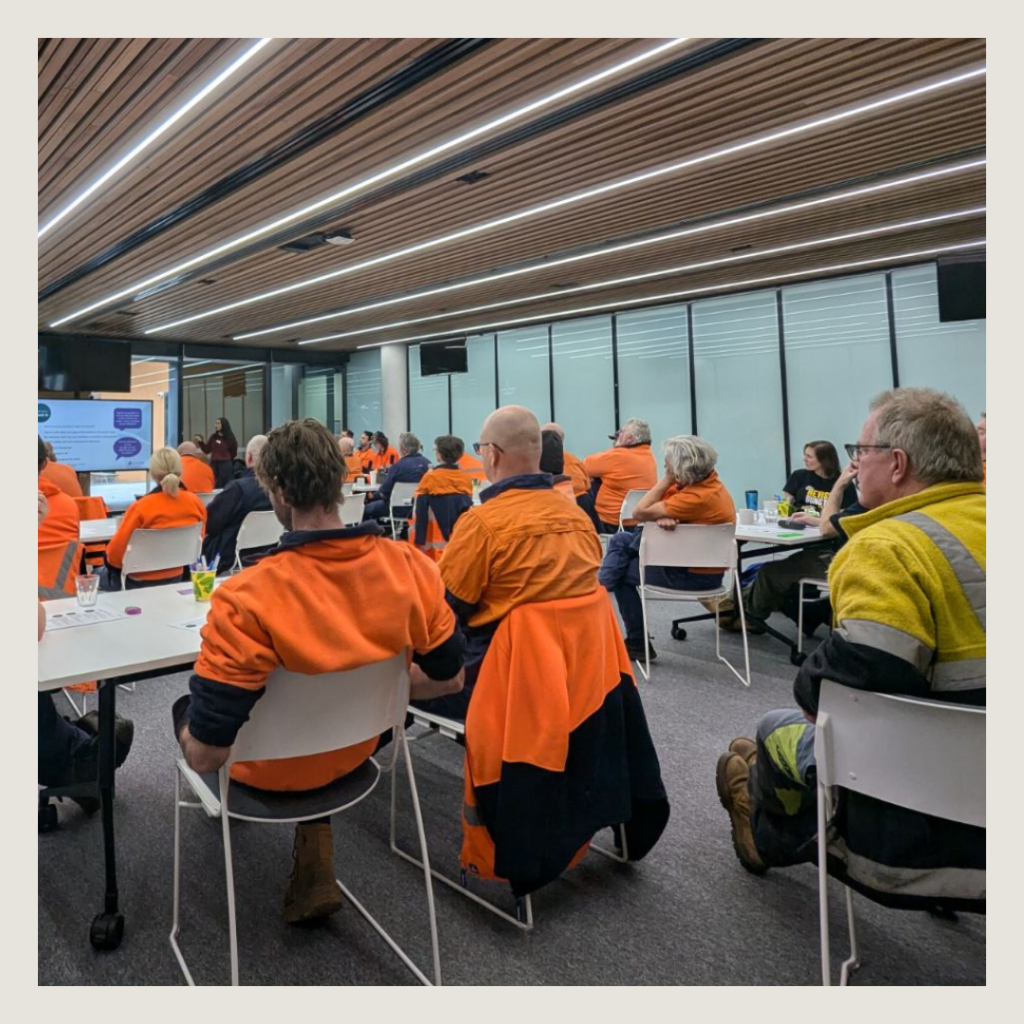
Yarra Ranges Council
Between 2024 and 2025, Yarra Ranges Council (YRC) delivered compulsory Gender Equity and Active Bystander Training workshops to staff across the entire organisation. These three-hour sessions strengthened their commitment to embedding a gender-equitable culture and empowering staff to speak up against disrespectful and discriminatory behaviour.
Grounded in a whole-of-organisation approach, the workshops explored the connection between gender inequality and violence against women, introduced YRC’s role in promoting gender equity, and provided participants with the knowledge and tools to become active bystanders in the workplace and broader community.
YRC achieved a 95 per cent participation rate, with over 863 staff engaged through 34 targeted and general sessions. Participants highlighted the value of practical tools, inclusive facilitation and the relevance of the training to real-world scenarios in the training. This initiative demonstrates how mandatory, organisation wide training can drive measurable cultural change, equipping staff across all levels to challenge discrimination and foster safer, more inclusive workplaces.
Read more about the Gender Equity and Active Bystander training here.

Mishka
For the past five years, Mishka has been advocating for police accountability and reform to improve responses to victim survivors of police perpetrated family violence.
Mishka is a survivor of a police perpetrator who, in 2020, was the first Victorian police officer convicted of family violence in five years. After sharing their story on the radio, Mishka was contacted by many people who’d been through a similar experience and wanted to connect. This led them to start a peer support and advocacy group for other victim survivors of police perpetrators known as the OIDV Network.
As the OIDV Network grew, they discovered just how common police perpetrated family violence is, and how common it is for victims to experience forms of systems-abuse unique to police perpetrators and to consequently feel isolated.
Presently the OIDV Network has two tracks: peer support for victim survivors of police officers actively going through the criminal justice system and peer advocacy, with victim survivors writing submissions, meeting with politicians, lobbying the police and giving evidence in front of the Parliamentary committees.
After a dedicated period of lobbying from the group, Victoria Police acknowledged the need for reform, changed its investigation practices and procedures and released both a policy for dealing with police perpetrated family violence and sexual assault and materials for victim survivors considering making a complaint against a police perpetrator – with those resources informed by members of the OIDV Network. Since then, there has been a significant increase in charges and convictions of police officers for family and sexual violence crimes, and in officers removed from the force because of complaints from victim survivors.
Currently, the OIDV Network is pressing for further reforms within IBAC and Victoria Police to improve victim survivor welfare and safety and focusing on finding ways to innovate and collaborate with others in the same space, whilst maintaining their identity, autonomy and survivor-informed approach.
They have been working closely with a community legal centre and family violence service provider on collaborative advocacy and submissions. Most importantly to Mishka, the grassroots and self-funded group is a collective with shared custodianship, a shared purpose and shared achievements. Their motto is that justice can be found in changing the system to help others and that healing can be found in solidarity with other survivors.
Separately, Mishka is a co-founder of the Independent Collective of Survivors (ICOS), a survivor-led independent organisation dedicated to ending domestic, family, sexual and gendered violence. Through valuing and embedding lived expertise, they aim to drive systemic change and policy reform, transform societal attitudes and amplify the voices of lived experience. ICOS drafted the survivor statement included in the Federal Government’s National Plan to End Violence Against Women and Children and in it calls for the diverse and differing voices of survivors to be heard and inform reforms.
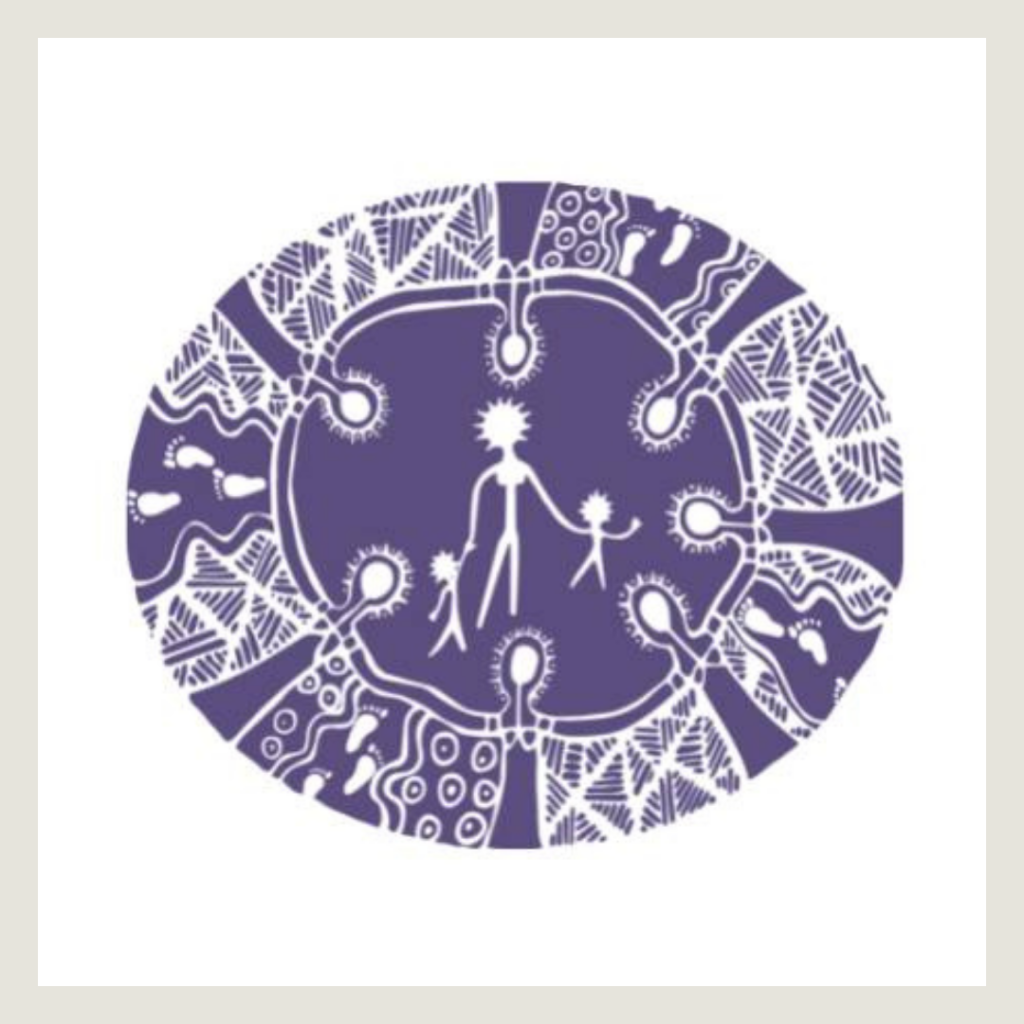
Elizabeth Morgan House
Elizabeth Morgan House Aboriginal Women’s Services Inc. (EMH) is the peak body in Victoria for Aboriginal women and children impacted by family violence. As an Aboriginal community-controlled organisation led by and for Aboriginal women and children, they walk beside women, children and families experiencing, or at risk of, family violence and run programs that support Aboriginal women within the justice system.
EMH’s work centres the rights, safety and self-determination of Aboriginal women within systems that remain shaped by discrimination and ongoing colonial harm.
This work includes cultural, therapeutic and practical support. They provide crisis and refuge accommodation, specialist family violence responses, therapeutic programs, advocacy in courts and program delivery within the justice system. Everything EMH does is grounded in culture, community and the strength of Aboriginal women.
EMH believes in a future where Aboriginal women and children are safe, respected and free from all forms of discrimination and gender-based violence. Their strong 50-year legacy continues to guide this work. Over the past year, EMH has provided therapeutic support through 692 phone counselling appointments, 98 in person counselling sessions and 73 online counselling sessions.
Through their Aboriginal Healing Unit programs within Dame Phyllis Frost Centre, they have supported 114 Aboriginal women and provided case management support for 18 women. Their family violence support has included a 21 per cent increase in court support hours, outreach support for 228 women, 502 intake enquiries responded to and 169 nights of crisis accommodation funded for 33 women and children.
These numbers reflect only part of the story. At its heart, EMH stands with Aboriginal women, upholds their rights and self-determination and ensures no woman has to navigate violence or systems alone.
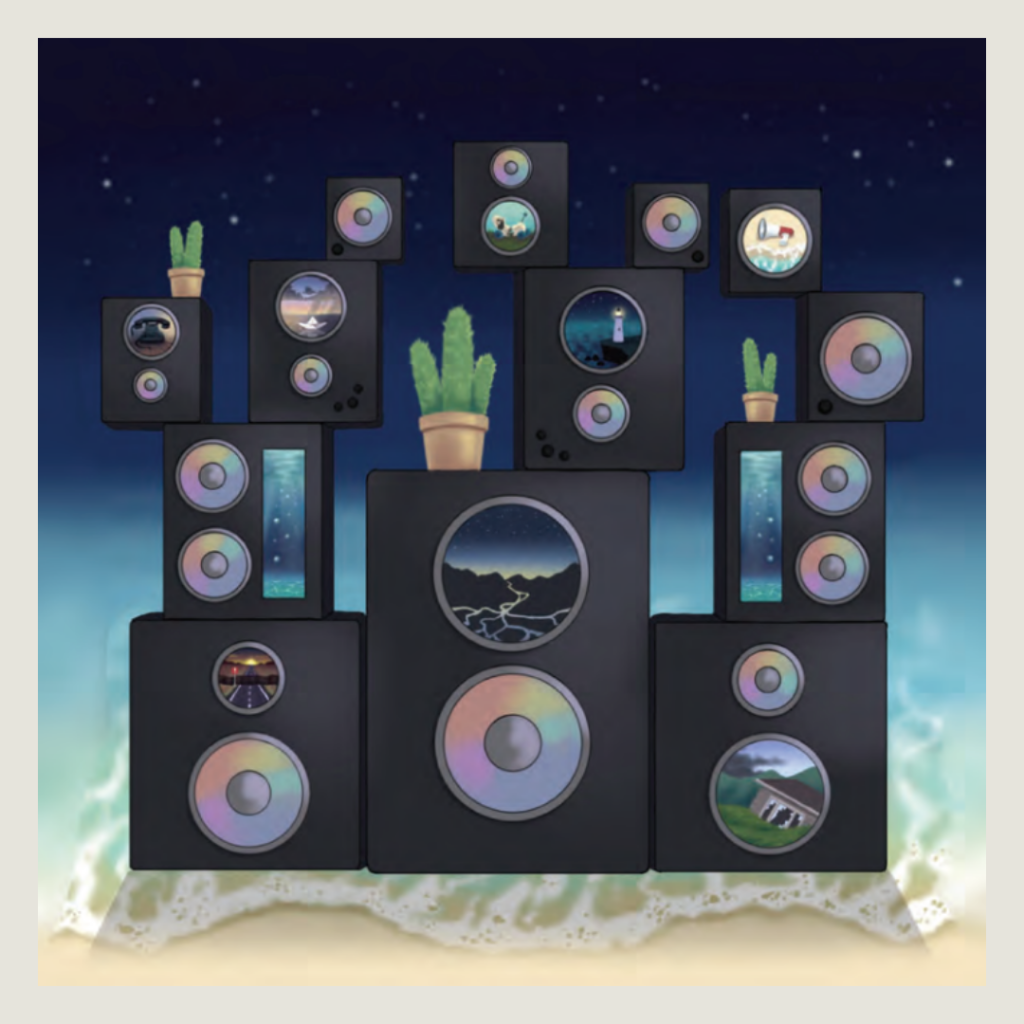
Melbourne City Mission
MCM (Melbourne City Mission) is a leading community support organisation working alongside people to live the life they aspire to, their way, providing a broad range of support in: Homelessness, Early Years, Disability, Early Childhood Intervention Services, Education, Palliative Care and Mental Health service areas.
MCM’s Amplify project is Australia’s first dedicated family violence case management program for unaccompanied children and young people. Funded by Family Safety Victoria and the Commonwealth National Partnership Agreement, Amplify is filling critical gaps by providing better short- and long-term safety outcomes, an increase in engagement with education, greater access to legal assistance and improved financial safety for Victoria’s young people.
The Amplify model empowers young people to recognise and name their experiences of family violence, often for the first time. It provides vital support in planning for their personal safety, staying engaged in school, and accessing critical resources and funding within the family violence system. Additionally, the program facilitates access to legal advice and supports, including assistance with obtaining intervention orders. A unique aspect of Amplify is its use of peer workers with lived experience of family violence who support participants navigate the system in a safe and relatable way.
An Evaluation found that the program had a significant impact on young people’s family violence risk, with almost four in five young people experiencing a tangible reduction in family violence risk. The housing situation improved for 62 per cent of these young people, with more than one in three in longer-term or sustainable housing or accommodation. Of those young people who were actively supported to connect with education and/or employment, 60 per cent experienced an overall improvement in engagement in these areas. A further one quarter were able to maintain their pre-existing engagement, despite their experiences of homelessness and family violence risk.
Without the Amplify program, the Evaluation found that these barriers would almost certainly mean that young people would remain unseen and at risk of ongoing harm.
DO YOU NEED FAMILY VIOLENCE SUPPORT?
If you or someone you know is in immediate danger, call triple zero (000).
If you are experiencing family violence, there are services that can provide support and advice.
For support across Australia, contact 1800 RESPECT (1800 737 732) or visit 1800respect.org.au.
